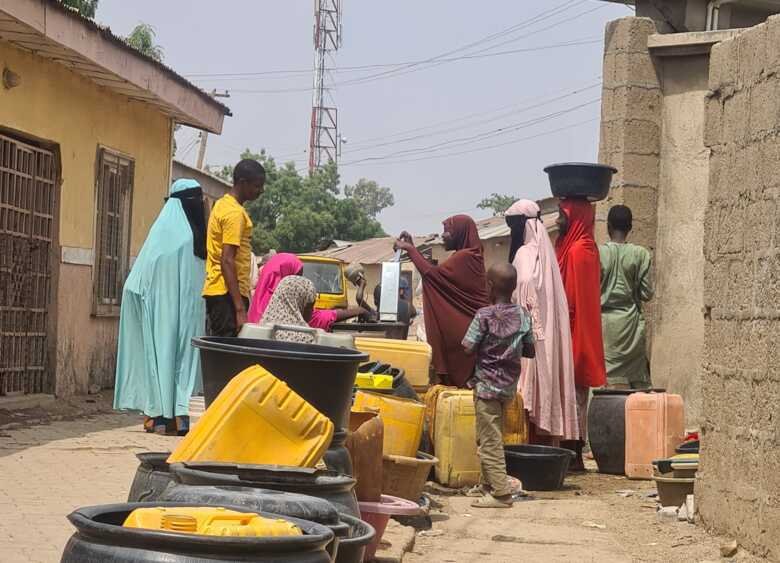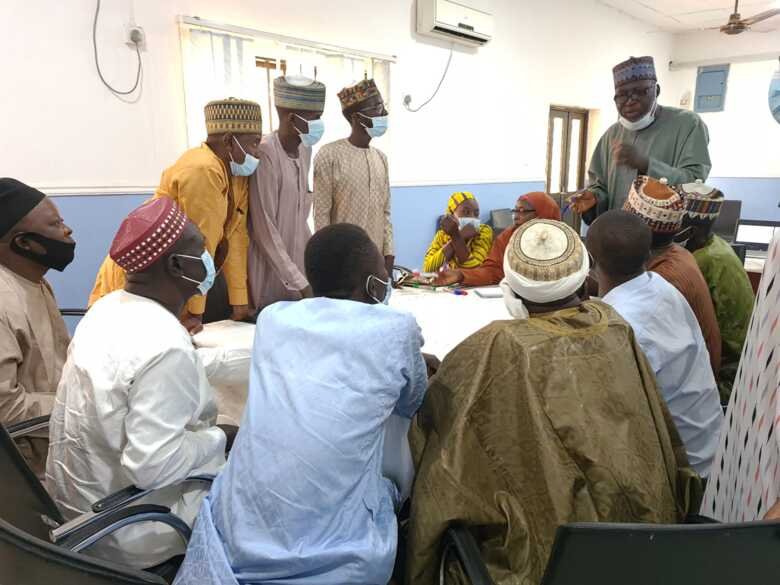Meet Kelly Elimian, global public health expert working on cholera interventions in Nigeria

Kelly Elimian is a postdoctoral researcher at Karolinska Institutet in the research team Global Child Health and Sustainable Development Goals, Department of Global Public Health. His research focuses on strengthening cholera interventions in the north-eastern part of Nigeria and making sure available interventions are properly implemented across cholera endemic countries, of which Nigeria is one.

Before joining Karolinska Institutet, Kelly Elimian was a consultant in Nigeria working on the Covid-19 response. He provided technical support and coordinated the research unit at the Nigerian National Emergency Operations Centre. Additionally, he was teaching microbiology and epidemiology at the University of Benin, located in the southof Nigeria. Prior to that, after finishing his PhD at the University of Nottingham, he worked at Queen Margaret University in Scotland, focusing on health systems strengthening for the delivery of non-communicable diseases and mental health and psychosocial support in settings made fragile by armed conflicts.
Strengthening implementation of cholera multi-sectoral interventions
Northeast Nigeria is a region where it is difficult to carry out public health surveillance activity and conduct case management of cholera patients. Delivering healthcare or seeking help as a patients is particularly challenging in the region because of insurgency by the terrorist organisation Boko Haram. Moreover, because of the displacement of people in this community, many people live in an overcrowded environment, thereby exposing them to cholera infection.
“My research focuses on strengthening cholera interventions in settings made fragile by armed conflict, which is common in the north-eastern part of Nigeria. We aim to make sure available interventions are properly implemented across cholera endemic countries, of which Nigeria is one”, says Kelly Elimian.
The Global Task Force of Cholera Control (GTFCC) within the World Health Organization is a coordinative umbrella organisation for cholera control globally. They recommend interventions including surveillance, case management, oral cholera vaccination, water sanitation and hygiene, community leadership and engagement (risk communication) and coordination.
Using a system thinking approach
“These are the basic interventions for cholera, but we find that it is not that we do not know about them. Because of the difficulty in implementing these interventions we wanted to investigate how we can strengthen the implementation processes using a systems thinking approach, by looking at things in a systematic way, not in a linear way. In epidemiology, we tend to focus on exposure and outcome variables, but through a systems approach, you want to look at the various factors that are affecting an outcome at the same time. It is about allowing stakeholders to drive development rather than using statistics alone”, he says.

Education and engaging community stakeholders
When asked what challenges Nigeria is faced with to improve overall child health, Kelly Elimian mentions various factors. Nigeria has six geopolitical zones, and the poorest indicators for child and maternal health care are found in the northeast.
“The issue of the poor educational level of mothers is a major determinant. Statistically, children born to mothers with less education tend to perform poorly,” he says. To address this issue, he argues that education needs to become more accessible and that it is important to engage not just the government and political stakeholders but also the community stakeholders.
“You cannot only use science and law, but you also need to engage the traditional rulers and religious leaders to advocate for a higher level of education for girls, which will directly improve the health of children in that region”, he says.
Poor vaccination rates
Another challenge concerns the poor vaccination rate. Most of the diseases that children die from in the northeast region are preventable through vaccination, but in the region the uptake is not as good as in other parts of the country.
“Part of this is that there is a misconception that vaccines are not good for children, and these types of misconceptions can be addressed through proper education and risk communication,” he says.
Funding and coordination of health care
Generally, the funding of the health care sector is poor in Nigeria, especially in the northern part. A reason for this is that people in the south has a higher level of education. This part of the country is also home to the petroleum industry, the main source of income for Nigeria.
“Based on my experience, there is also an issue of coordination that needs to be addressed if you want to approve child and maternal health care,” says Kelly Elimian. He describes coordination challenges where donors contribute to areas of their own interest that may not be the most urgent ones.
“Donors need to learn to work with the government that oversee needs assessment and better placed to inform you where supports are needed. But you see some donors with funds would say they are not interested in those areas. So we find that many opportunities to improve the health care system will be missed because of poor coordination,” he says.
Reducing cholera cases by 2030
Nigeria is currently battling the largest cholera outbreak in recent times, with over 100 000 cases, reemphasising the fact that cholera remains a significant threat in the country.
“Having explored the barriers and problems to implementing cholera interventions by actively engaging different stakeholders at the national and community levels, my plan is to use the findings to design interventions”.
The possible interventions to fight the cholera situation will hopefully lead to achieving the GTFCC goal to reduce deaths from cholera by 90% and eliminate cholera from at least 20 endemic countries by 2030.
“Hopefully, when we have designed and implemented successful interventions based on the findings, we will share them with the Cholera Support Platform within the GTFCC that we are working closely with” he says. “If we can do that, I think it would be a huge step towards addressing cholera in Africa and possibly in other regions”.
A well-known illness that can be eliminated
“Cholera is something we know and understand very well, it is not like Covid-19 that is new and evolving. We know that if you improve water sanitation and hygiene and have an effective surveillance system, it will not be an issue, yet it remains persistent. We can remove it from our list of priority diseases in Nigeria. That is what is driving me as a Nigerian and as a global health expert.”
